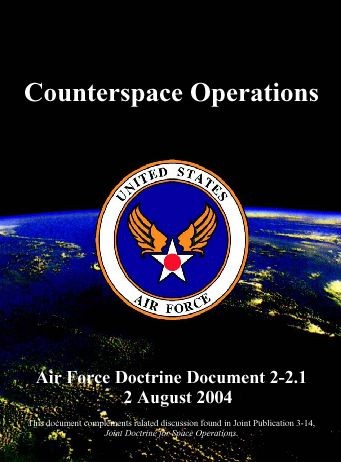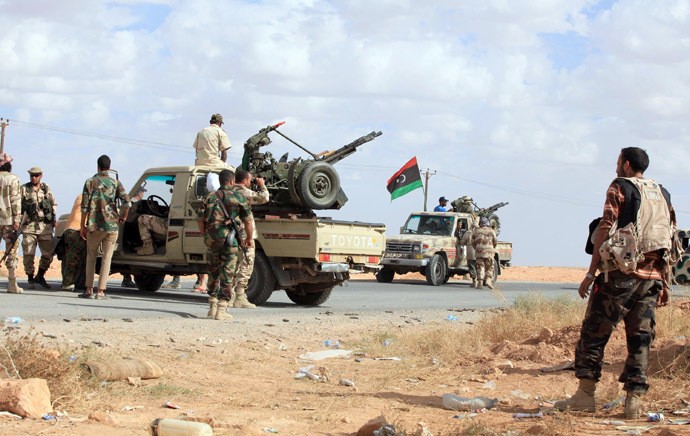US expands military net over Africa checking China’s influence
Post on: 16 Март, 2015 No Comment

Over the last decade, America has quietly expanded its military presence throughout Africa in an attempt to counter Chinese and other emerging nations’ influence, while consolidating control over critical strategic resources and trade routes.
The United States, like its allies Britain and France, has long maintained influence and indirect control in Africa through financial institutions such as the World Bank, International Monetary Fund, and African Development Bank. It has exerted political influence using aid organizations such as USAID and NGOs like the National Endowment for Democracy, Freedom House and others.
However, recent years have seen an unprecedented military expansion which has gone almost entirely unnoticed by the US public.
After 9/11, the United States began to grow its military footprint on the African continent under the guise of a ‘War on Terror’, selling this notion to a United States gripped with fear of terrorism. With programs such as the Pan-Sahel Initiative, later broadened into the Trans-Saharan Counterterrorism Initiative, Washington managed to provide military and financial assistance to compliant countries in North Africa – a policy whose practical application meant that the US military became the dominant force in the Sahel region, supplying the human and material resources for which the governments of the region were starved. Naturally, this meant an implicit subservience to US military command.
The Pan-Sahel Initiative, according to the Office of Counterterrorism. US Department of State, was a State-led effort to assist Mali, Niger, Chad, and Mauritania in detecting and responding to suspicious movement of people and goods across and within their borders through training, equipment and cooperation. Its goals support two US national security interests in Africa: waging the war on terrorism and enhancing regional peace and security. In 2005 it was replaced by a larger-scope Trans-Saharan Counterterrorism Initiative, which in turn was incorporated into the United States Africa Command in 2008.
However, all the initiatives in the post 9/11 period were still under the authority of a variety of military commands. To remedy this, in 2007 the Bush administration created US Africa Command (AFRICOM) to act as the umbrella organization under which all US military activity in Africa would fall. AFRICOM became an officially independent command a year later, and in the seven years its scope of activity has broadened tremendously, with its direct or indirect presence extending into nearly every country on the continent.
Far from initial AFRICOM agenda
AFRICOM’s mission statement reads like a campaign slogan, stating that “[AFRICOM] advances US national interests and promote[s] regional security, stability, and prosperity.” However, a more critical analysis would question exactly how Washington defines “security, stability, and prosperity,” and perhaps most importantly, whose prosperity they’re principally interested in.
Ostensibly, the US military acts to defend ‘democracies’ in Africa for the collective betterment of the people of the continent. As Deputy Assistant Secretary of Defense Theresa Whelan stated in 2007, “AFRICOM is about helping Africans build greater capacity to assure their own security.”
However, even the words of AFRICOM’s leadership quickly dispel that mythology. Vice-Admiral Robert Moeller, military deputy to former commander of AFRICOM General William ‘Kip’ Ward, told an AFRICOM conference in 2008 that AFRICOM’s goal was “protecting the free flow of natural resources from Africa to the global market.” Furthermore, Moeller wrote in 2010, “Let there be no mistake. AFRICOM’s job is to protect American lives and promote American interests.”
The military leadership made their agenda quite clear from the very outset of AFRICOM: provide a military presence to ensure the continued exploitation of Africa for the enrichment of finance capital, and the maintenance and expansion of US hegemony on the continent.
Perhaps the most obvious example of AFRICOM’s mission on the continent was its coordination of the US role in the NATO war on Libya. Directing the war from its secretive base, known as Camp Lemonnier, in Djibouti, AFRICOM played a key role in identifying targets, organizing forces, and providing tactical intelligence.
Far from ‘providing stability’, the US military eliminated a peaceful government that refused to submit to the dictates of Washington, London and Paris. Gaddafi’s government committed the grave sin of nationalizing oil resources and sharing the profits with its people, providing clean drinking water and adequate housing, engaging in large-scale infrastructure projects such as the Great Man-Made River, providing jobs and legal protections to migrant workers from neighboring countries, and serving as a model of economic development outside the hegemony of the Western powers.
For these and many other reasons, the US and its allies mobilized their militaries and destroyed Libya, leaving it to become the chaotic and failed state that it is today.
A direct consequence of the neocolonial war on Libya was the further destabilization of the Sahel region, and the nation of Mali specifically. Although Western media has attempted to downplay the US role in the Mali conflict, facts have emerged demonstrating a very clear US role in the destabilization of the country. As the Tuareg fighters who bravely fought to defend Gaddafi and the Libyan Arab Jamahiriya returned to Mali, they rekindled their decades-long struggle for self-determination and the establishment of their own independent state of Azawad.
In the midst of this conflict however, the Malian government of President Toure was overthrown by a midlevel military commander named Amadou Sanogo. Far from acting alone, reports emerged confirming that he was, in fact, trained by US military . Moreover, the Washington Post also reported that US military personnel were inside of Mali long before the coup took place, suggesting at the very least support for, if not direct control of, Sanogo and his fellow plotters. Of course, under the auspices of fighting Al-Qaeda in the Islamic Maghreb, a North African terror organization, the French and their NATO allies engaged in a yet another neo-colonial war, occupying Mali and, again, ‘promoting stability’.
AFRICOM also took command of US military involvement in Somalia and the Horn of Africa more broadly in 2008. The United States backed the invasion of Somalia by Ethiopia in late 2006, with the CIA funneling money and weapons to Washington’s favorite warlords in a successful attempt to prevent the Council of Islamic Courts from constituting a government in the war-ravaged country. In so doing, the US prolonged the war and helped promote the growth of the Al-Shabaab terror organization.
More recently, AFRICOM has transformed its mission on the continent. Rather than ‘supporting national governments’, it has become a leader and initiator of military activity. In 2013 alone, AFRICOM conducted joint exercises with fourteen African nations, leading land, sea, and air-based operations.
Additionally, Mother Jones magazine developed an important graphic illustrating the pervasive military footprint throughout the continent, one that is only growing. It would seem then that AFRICOM’s initial ‘mission statement’ is but a distant memory.

‘Proxy war theater’
It is no secret that the last decade has seen an unprecedented expansion of Chinese investment throughout Africa. As renowned Professor and China scholar Deborah Brautigam noted in her 2013 report ‘Chinese Investment in Africa’ , “Chinese imports and exports, outbound investment aid, and export finance are all sharply on the rise. For example, trade between China and Africa rose from $10 billion in 2000 to $166.3 billion in 2011… [In 2012] Chinese leaders announced a goal of $20 billion in finance to African countries by 2015. If carried out, an average of between $6 and $7 billion would flow to Africa per year.”
Brautigam’s numbers illustrate the fact that, while still slightly below yearly US total investment in the continent ($9 billion), China is rapidly challenging US economic hegemony in Africa. Having invested in a variety of sectors from mining and oil, to telecommunications and banking, China has made itself into a viable alternative to US, World Bank, and IMF investment and aid. Naturally, this has upset the political and corporate establishment in the US who see in China a threat to their power.
Washington’s Africa policy in recent years must be understood within the context of checking China’s growing power and influence. One prime example is the US-sponsored break up of Sudan and the creation of South Sudan.
In order to power its massive industrial sector and population, China has become the world’s leading energy importer, with lucrative contracts all over the world. However, Beijing’s primary oil source in Africa was Sudan, which accounted for 8 percent of China’s total oil imports (China being the recipient of a whopping 78% of total Sudanese exports ).
With the oilfields being located primarily in the south of the country, the US led the charge to dismantle Sudan and create a South Sudan that would be dependent on US finance and military muscle (provided by AFRICOM and US clients such as Uganda and Rwanda) for its very survival. The continuing violence and bloodshed in South Sudan – a result of internal power struggles between competing US aligned factions – is merely collateral damage in Washington’s growing proxy war with China.
China is also a major trading partner of its longtime ally Zimbabwe. Having invested in a variety of industries including mining, tobacco, and infrastructure, Beijing has a great interest in maintaining stability in Zimbabwe. Conversely, the United States has attempted to destabilize the country throughout the last decade, going so far as to impose crippling sanctions and attempt regime change using proxies inside Zimbabwe.
All over Africa, the United States has tried to check the growing influence of China. From Nigeria to South Africa, Angola to Sudan, the US is engaging in a widespread proxy war with the expressed intention of maintaining its dominant position in Africa. Using its vast military resources, Washington seeks to cement its African hegemony using the same colonial tactics as every other empire that came before it.
The statements, views and opinions expressed in this column are solely those of the author and do not necessarily represent those of RT.














